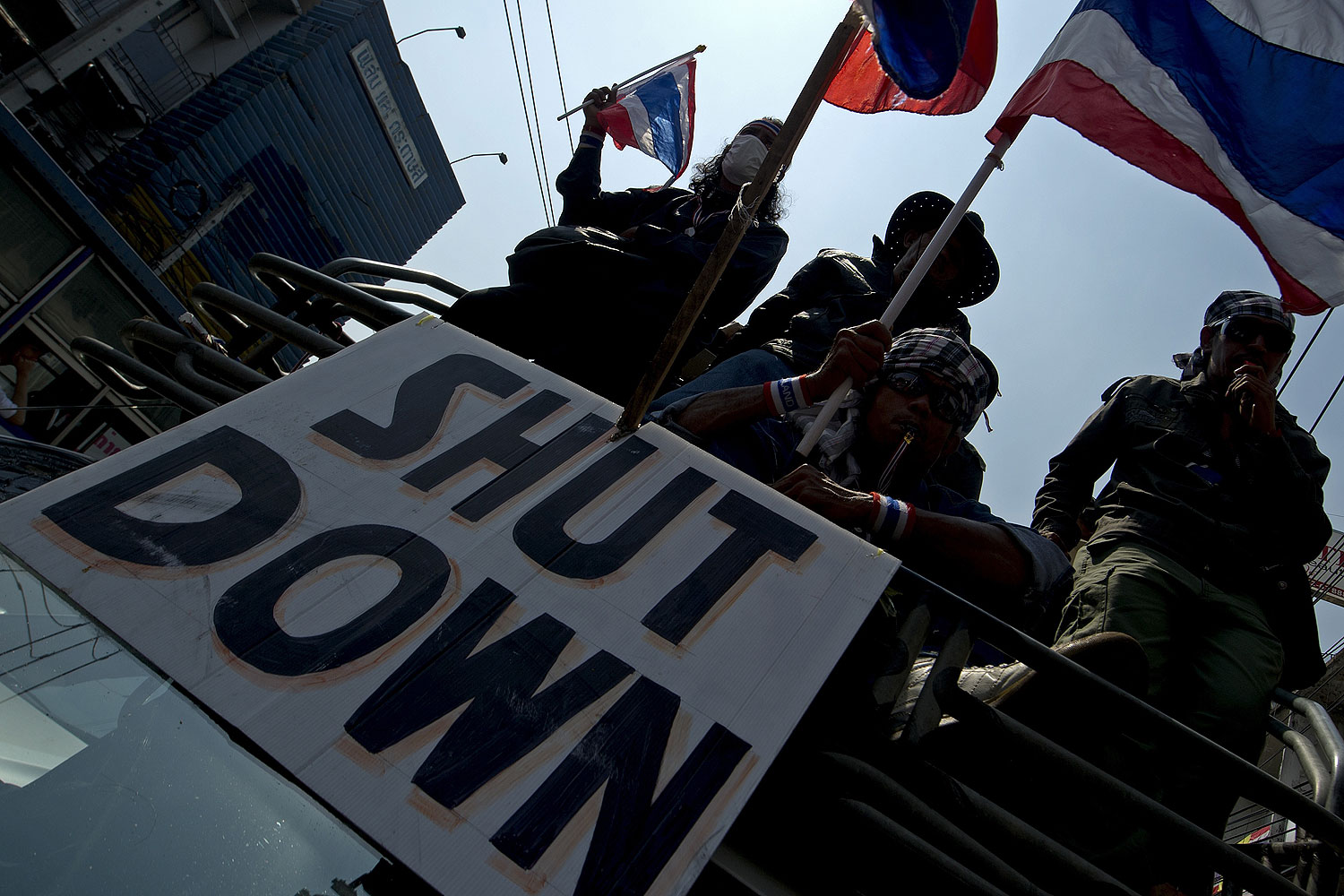
Thailand‘s Election Commission has the authority to postpone elections slated for Feb. 2, according to a decision Friday afternoon by the nation’s Constitutional Court, Associated Press reports
The ruling is yet another blow for embattled 46-year-old Prime Minister Yingluck Shinawatra, who had previously vowed to hold snap polls early next month in accordance with a decree made by ailing King Bhumibol Adulyadej.
The Election Commission had argued that the polls should be delayed because of the fierce antigovernment protests that have roiled sprawling Bangkok, the world’s most visited city, for almost two weeks. However, Yingluck is anxious to hold the polls to reassert her mandate.
Whistle-blowing demonstrators are demanding that Thailand’s first female leader steps down. Protesters say Yinguck is merely a proxy for her polarizing elder brother, former Prime Minister Thaksin Shinawartra, a billionaire telecoms mogul who was ousted in a military coup in 2006 and now lives in exile in Dubai following his conviction in absentia for corruption.
Thaksin’s immense popularity in once-impoverished northern and northeast provinces has enabled parties he backs to win the previous five elections. The protesters — mostly Bangkok’s middles classes and southern voters — know this will likely be the case again if polls are held next month.
The current unrest, which has claimed at least one life and injured scores, was sparked by a now-shelved amnesty bill that would have allowed Thaksin home and reunited with some $1.2 billion in seized cash and assets. Yingluck enacted a state of emergency on Wednesday in a bid to quash spiraling violence. According to the emergency decree, the media is banned from presenting news that could spur public anxiety or threaten national security, vehicles and premises can be declared off-limits, and gatherings of more than four people are prohibited.
“This will only increase the mistrust and suspicion between the conflicting parties,” says Sunai Phasuk, Human Rights Watch’s senior researcher on Thailand. “It seems there is no way out from the imminent escalation of confrontation and violence.”
In addition to distinct regional and class tensions, the specter of royal succession also lies behind the protests. U.S.-born monarch Bhumibol is 86 years old and ailing, while his heir, Crown Prince Maha Vajiralongkorn, is unpopular and believed to be more receptive to Thaksin than his revered father. Thailand’s traditional elites, including the powerful Privy Council, see expelling the Shinawatra clan as the only way to safeguard their future interests.
Protest leader Suthep Thaugsuban has vowed to fight on despite the emergency decree. “Within this week, we will shut down every government agency, he told supporters late Thursday. “All civil servants now are giving their heart to the side of the people.”
However, many Thais seem intend on exercising their democratic right. According to a poll of 1,018 voters nationwide, conducted by Bangkok University, four out of five Thais would cast a ballot on Feb. 2, and most opposed another military coup, even if there is an escalation in violence. The Election Commission said Friday that more than two million voters had registered for the advance polls.
Leaders of the pro-Thaksin Red Shirts will be holding rallies around the country in support of elections next week.
“[Antigovernment protesters] don’t want democracy, they want aristocracy,” Thida Thavornseth, chairwoman of the United Front for Democracy Against Dictatorship, the principal Red Shirt organization, recently told TIME. “We do not fight for Thaksin, we fight for democracy and justice.”
More Must-Reads From TIME
- The 100 Most Influential People of 2024
- Coco Gauff Is Playing for Herself Now
- Scenes From Pro-Palestinian Encampments Across U.S. Universities
- 6 Compliments That Land Every Time
- If You're Dating Right Now , You're Brave: Column
- The AI That Could Heal a Divided Internet
- Fallout Is a Brilliant Model for the Future of Video Game Adaptations
- Want Weekly Recs on What to Watch, Read, and More? Sign Up for Worth Your Time
Write to Charlie Campbell at charlie.campbell@time.com